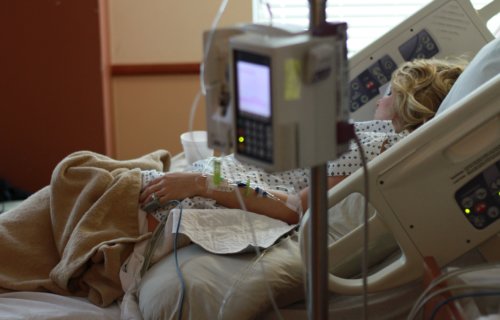ANN ARBOR, Mich. — Doctors, nurses, and other staff working in hospitals are constantly reminded about the importance of good hygiene. They are always washing hands, changing gloves, and sanitizing areas to avoid the spread of pathogens. A recent study finds one area healthcare workers can’t always be certain of are their patient’s hands. University of Michigan researchers say “superbugs” are being found on many patients, even long after they’re admitted to the hospital.
Researchers say 14 percent of 399 hospital patients tested had antibiotic-resistant bacteria on their hands or nostrils. About a third of the objects patients commonly touch in their rooms, such as the nurse call button, test positive for resistant bacteria.
Six percent of the patients who didn’t have superbugs, also called multi-drug resistant organisms (MDROs), on their hands at the beginning of their hospital visit eventually came into contact with MDROs later during their stay. One in five objects tested in those rooms had similar superbug bacteria on them as well.
How dangerous are superbugs?
The study authors stress that the presence of these drug-resistant organisms doesn’t always sicken patients. They also note that medical health workers’ hands are still the most common way to transmit microbes to patients.
“Hand hygiene narrative has largely focused on physicians, nurses and other frontline staff, and all the policies and performance measurements have centered on them, and rightfully so,” says University of Michigan epidemiologist Dr. Lona Mody in a media release. “But our findings make an argument for addressing transmission of MDROs in a way that involves patients, too.”
Researchers made over 700 visits to general medicine inpatient rooms at two hospitals, taking samples from patients’ bodies and surfaces touched by them most often. Mody and her team report that of the six patients who developed a MRSA infection while in the hospital, all tested positive for MRSA on their hands and several hospital room surfaces.
Antibiotic-resistant bacteria moves fast, spreads everywhere
The study also tests for other MDROs, including VRE (vancomycin-resistant enterococcus) and RGNB (resistant Gram-negative bacteria). These bacteria strains have all become more resistant to antibiotics over time.
Using genetic fingerprinting techniques, scientists can determine if the strains of MRSA bacteria on a patient’s hands are the same as the one in their room. In almost all of these cases, the MRSA strains match, suggesting that pathogens are moving to and from patients entering hospitals. The Michigan team says this may also prove transmission of these strains happens rapidly.
Tracking germs throughout a hospital
Since many patients arrive at hospitals via the emergency room, they usually receive examinations in other areas before getting rooms.
Mody notes hospital patients don’t only stay in their rooms. Many must walk the halls as a part of their recovery from many illnesses. They could be also transported to other parts of the hospital for certain tests and procedures. This transit period can cause them to pick up MDROs from other patients and staff.
Even if a healthy person fights off an MDRO infection, a more vulnerable patient in the same hospital could contract the bacteria and become sick. The study urges further study into MDRO transmission in emergency rooms and other medical areas.
The study is published in the journal Clinical Infectious Diseases.

Sorry to post this but can the picture being used in this article be removed from this site and google please as it truly offends me and has made me personally upset
Thank you